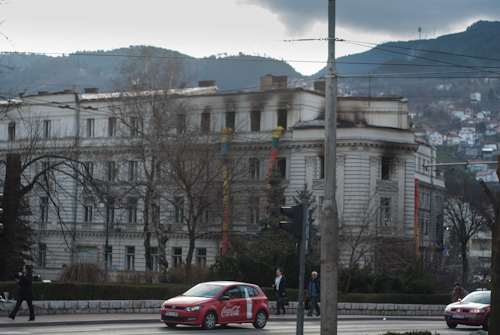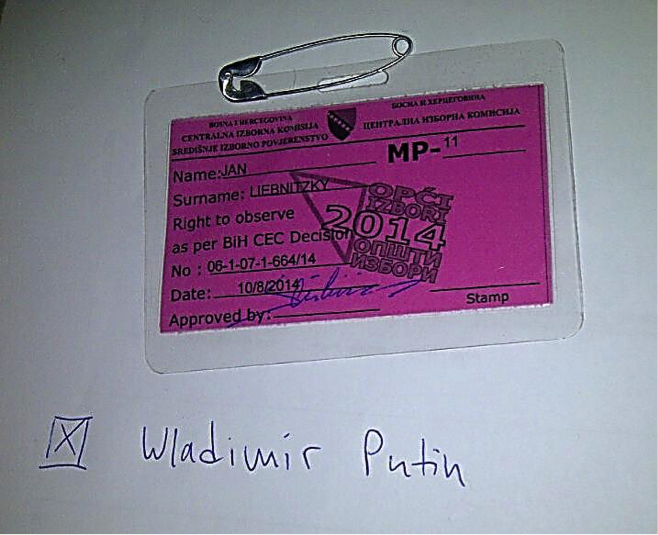DIY Politics — an example of direct citizen involvement
By Christine Hübner.

One evening last week all my Dutch colleagues and friends suddenly huddled in front of their TV sets—in big excitement about the soon-to-be announced abdication of their queen Beatrix in favour of her eldest son Prince Willem Alexander. I was watching the happenings in a mixture of awe, curiosity, and—at the same time—utter incomprehension. Excited to experience some first-hand monarchy, I was also perplexed about how sudden my forward-looking and hands-on Dutch friends turned their attention towards nonsensical discussions about whether the queen was too old for the throne or her son too inexperienced to take over. Their perspectives seemed profoundly outdated to me and did not fit the inventive and pragmatic image I had of my host country.
That image stemmed from experiences such as the latest initiative for direct citizen involvement in the city of Rotterdam: I was pretty surprised when I received an invitation from the municipality in November inviting me to voice my opinion on how Rotterdam should approach the necessary reforms of municipal administration. With an interest to reduce administrative layers and trim down the number of public office holders, it was decided that local district councils (deelgemeenteraden) can no longer be elected from 2014. The discussion of alternatives on how to involve townspeople in city politics was not supposed to take place behind closed doors. Instead, the aim was to design alternatives for the administration of Rotterdam after 2014 with the help of inventive Rotterdammers themselves. And of as many of them as possible.
A variety of contact points such as local district debates and discussion forums offered opportunities for citizens to speak up and guide the decision making process. Institutionalized groups such as housing cooperatives, tenant associations, churches, and even sports clubs were asked to gather feedback from members and make suggestions from their point of view. The iterative process of gathering reactions and developing alternatives was accompanied by a research project on public opinion delivering quantitative and qualitative insights from some 3,300 citizens. Finally, all citizens eligible to vote—in total more than 500.000 people—were contacted to cast a vote on one of two developed alternatives.
The official report on the project mentions legitimate criticism both on the two alternative solutions ultimately put forward as well as on the process itself. It noted that with about 12 months the iterations on the proposed models took lots of time and effort and that they did not involve enough people: of the 500,000 invited to join about 25,000 people voted online. Together with another 4,500 citizens giving qualitative feedback and about 650 citizens visiting one of the public debates, some 30,000 people were actively involved—a meager 6% of the population in the city. There is no account of the spread of involvement over social groups, but the turnout by district shows that most involved were the inhabitants of affluent parts of town and those most affected by the reform. Citizens from quarters predominantly inhabited by immigrants and second-generation Dutch were much less likely to voice their opinion.
Without doubt, if the project were to be repeated this criticism has to be reconsidered closely—especially the involvement of all social groups needs to be ensured. Citizens need to know about the campaign and need to have the capabilities to participate in it. Nevertheless, both as a citizen and a convinced democrat, I want to applaud this initiative for its boldness given two reasons:
- Firstly, trying to engage citizens is always better than taking decisions without any involvement. Yes, a deliberative process takes time, but it has to be worth it by the very nature of democracy. This project may have only reached 6% of the population, but from a different point of view it has engaged more than 30,000 people who would never have had the chance to speak up if the process had taken place without the effort to involve citizens. There are no examples known in the Netherlands for a public consultation process that actively involved such a large number of citizens.
- Secondly—and this may be the most underestimated argument in this debate—in a consultative process all citizens can at least feel involved. Even if I did not actively participate in the debates, I did feel a part of the decision making process just by experiencing the communication campaign all over town, finding a letter in my mailbox, and having the opportunity to participate. This project is a great example for what every CEO knows as stakeholder buy-in: citizens will be more willing to support the implementation of a solution by feeling engaged in the process of reaching it. For a city that hosts so many different nationalities, cultural and social backgrounds as Rotterdam, this involvement may exactly be what citizens need to promote a peaceful together.
One reason why this process of involvement is tried in the Netherlands above all countries may be hidden in the Dutch history of Polder politics: a political style that is aimed at consensus and compromise. I may have been judging too fast on the importance of the Dutch queen for the state of democracy in my host country, as it is the queen and her royal family who commit to the very same leadership style of bringing parties together instead of driving political opposites apart. Sitting together to talk things through and—if in doubt—inventing new ways to solve problems pragmatically is something I now deem a fundamentally Dutch quality. And something that I would wish to see applied more often across Europe in the future.
–
Christine Hübner is a partner at d|part.
Disclaimer
The views and opinions expressed in this article are those of the author.



